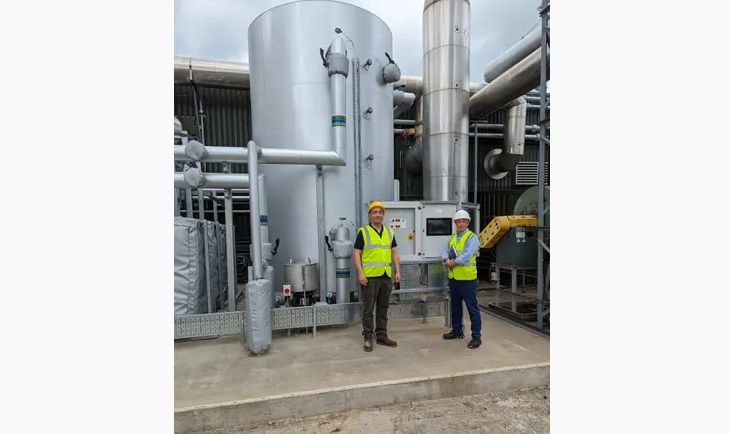The Hain Celestial Group, a prominent global health and wellness company, has announced a major investment in decarbonisation at its primary UK manufacturing facility in Histon, Cambridgeshire. This significant move is part of the company’s broader Global Impact Strategy, aimed at reducing greenhouse gas (GHG) emissions by 42% across its facilities worldwide by 2030.
Histon, a key site for Hain Celestial, produces many of the company’s well-known brands, including Hartley’s® jams and jellies, Robertson’s®, Frank Cooper’s®, Rose’s® marmalades, and Clarks® maple syrup. The site’s latest upgrades are centred around enhancing its environmental sustainability through advanced waste management and energy production technologies.
A key feature of the investment is the substantial upgrade to the site’s anaerobic digestion (AD) plant. This plant processes fruit waste to generate biogas, which is then used to produce electricity via a combined heat and power (CHP) unit. The system not only generates electricity but also uses the waste heat to produce hot water for the facility, establishing a highly efficient ‘closed loop’ energy system centred on fruit waste.
The upgraded AD plant is expected to more than double the amount of energy produced from waste fruit. This development will increase the green energy generated on-site to 25% of the facility’s total electricity needs, marking a significant step towards Hain Celestial’s sustainability goals.
Benjamin Jeffery, Sustainability Lead at Hain Celestial, expressed pride in the progress made at Histon. “We’re incredibly proud of the work that’s been done at Histon,” he said. “After witnessing the initial positive results and improvements, we are delighted to be installing a second CHP system to generate even more sustainably sourced electricity on-site.”
Histon’s commitment to sustainability is underscored by its ISO 14001 certification, which highlights its adherence to international environmental management standards. The facility is envisioned as a model for Hain Celestial’s ambitious global sustainability objectives, which include cutting Scope 1 and 2 emissions by 42% and Scope 3 emissions by 25% by FY 2030, compared to 2022 levels. The group also aims to use 100% renewable energy and divert 90% of food waste from landfills across its global operations by 2025.
Chris Jenkins, Global Head of Impact at Hain Celestial, highlighted the importance of the Histon project in the company’s sustainability strategy. “Histon represents a significant step forward in our commitment to reduce our environmental impact and enhance sustainability across our global operations,” Jenkins stated. “Our investment in decarbonisation technologies, including anaerobic digestion, is a prime example of our dedication to environmentally sound business practices. By leveraging innovative solutions, we are working towards a healthier planet and healthier people.”
The Histon facility’s advancements are expected to inspire similar sustainability initiatives across Hain Celestial’s global portfolio. The company’s focus on integrating cutting-edge decarbonisation technologies reflects its commitment to driving positive environmental change and setting a benchmark for sustainable practices in the industry.

